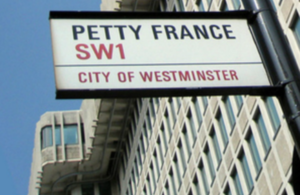Rural businesses to benefit from £35m government fund
Rural businesses across the country are set to benefit from a guaranteed £35 million in government funding to create new jobs, boost tourism, and unlock growth in rural areas. This figure could be increased to £50 million if there are enough high-quality applications.
The government’s Growth Programme, which opens for expressions of interest on Monday 4 November, provides grants for rural start-ups and businesses to purchase state-of-the-art equipment and machinery to grow their business or open up opportunities for tourism.
The scheme has already granted £99 million to 546 local businesses across England, creating 3,771 new jobs in rural areas.
In Sheffield, the farmers behind the brand Our Cow Molly secured a grant of more than £160,000 to invest in a new processing unit, which allowed them to produce higher quality fresh milk and ice cream – creating six new jobs.
Elsewhere, the North York Moors Railway Trust was awarded a grant to preserve 50 historic train carriages and steam engines, helping to increase visitor numbers, encourage more overnight stays in the local area and create additional jobs in the community.
Farming Minister George Eustice said:
Our dedicated fund for rural businesses has created more than 3,700 jobs and supported a diverse group of businesses, tourism operations and start-ups to unlock their full potential.
This next round of funding will help more businesses to grow and local areas to prosper – and I would urge any rural enterprise to look into what this scheme could do for them.
I would also encourage farmers to consider how they might use this funding to branch out and diversify their businesses, making the most of emerging trends and tastes and looking ahead to new opportunities.
For this funding round of the Growth Programme, the threshold for minimum grants has come down from £35,000 to £20,000, meaning that more small or micro-businesses can be eligible for a grant for their projects.
Paul Caldwell, Chief Executive of the Rural Payments Agency, said:
The Growth Programme provides funding to the 98% of the rural economy in England that isn’t directly engaged in farming. From heritage railways to creameries and vineyards, small and micro-businesses have benefited from the investment available under the Growth Programme in recent years.
We are looking to support applications from businesses with ambitious plans to grow their business and provide wider benefits to their local community.
I would urge all interested applicants to submit their expressions of interest as soon as possible to ensure they have plenty of time to complete a full application if their project is assessed to be eligible.
The RDPE Growth Programme handbook is available on GOV.UK and contains information on which projects are deemed eligible for a grant and how to apply.
Interested parties need to send an Expression of Interest form to the Rural Payments Agency, outlining how they meet the criteria for the scheme – from creating new jobs, increasing business turnover and improving productivity.
If the Rural Payments Agency considers the project to be eligible, the applicant will then be invited to submit a full application. The deadline for all Expressions of Interest is Sunday 16 February 2020.
